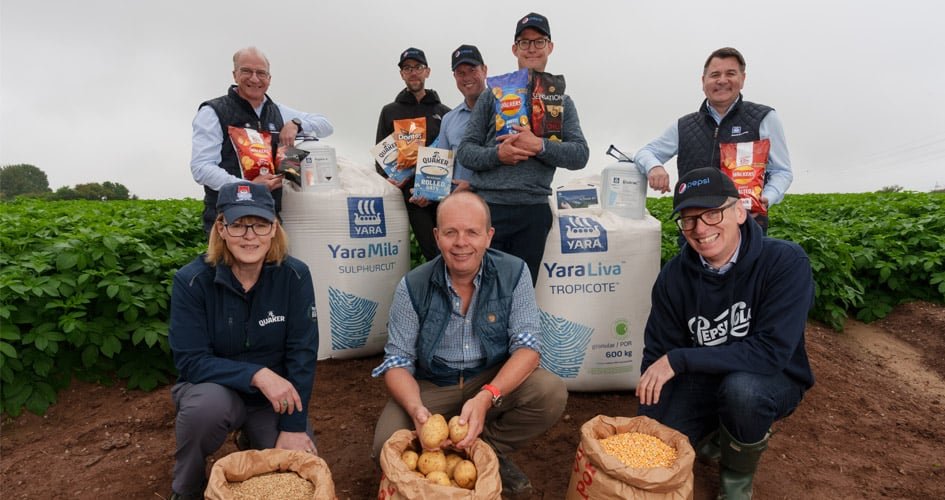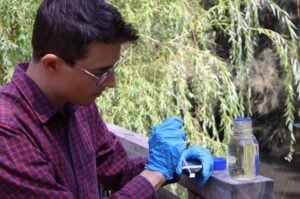Saturday, 17 January 2026
PepsiCo Europe and Yara partner to decarbonise crop production
As part of the partnership, which spans multiple countries, participating PepsiCo Europe farmers will be equipped with best-in-class crop nutrition products and advice as well as precision farming digital tools…

As part of the partnership, which spans multiple countries, participating PepsiCo Europe farmers will be equipped with best-in-class crop nutrition products and advice as well as precision farming digital tools
PepsiCo Europe and Yara announced today a long-term partnership in Europe aimed at providing farmers with crop nutrition programs to help decarbonise the food value chain.
As part of the partnership, which spans multiple countries, participating PepsiCo Europe farmers will be equipped with best-in-class crop nutrition products and advice as well as precision farming digital tools. This will allow them to increase nutrient use efficiency (NUE), boost yields and reduce the carbon footprint of their crops. Yara, the leading crop nutrition company in Europe, will supply PepsiCo with the products and services.
Yara will deliver up to 165,000 tonnes of fertiliser per year to PepsiCo, covering around 25 per cent of their crop fertiliser needs in Europe by 2030. These fertilisers will be mostly Yara Climate Choice fertilisers, which include low-carbon footprint fertilisers produced from either renewable ammonia (Herøya, Norway) or low-carbon ammonia via carbon capture and storage (CCS), currently under construction in Yara Sluiskil. The mix will also include Yara’s standard premium nitrate-based mineral fertilisers produced using natural gas, which have a carbon footprint that is around 50 per cent lower than most non-EU fertilisers thanks to the use of catalyst technology. The partnership aims to upgrade to Yara Climate Choice fertilisers over time as production scales up and technologies mature so that all of the 165,000 p.a. tons are Yara Climate Choice fertilisers by 2030.
The collaboration underlines the companies’ shared commitment to building a more sustainable food system in line with the European Union’s climate targets. At the same time, it will support farmers through transition costs to ensure their livelihoods are not adversely impacted.
Technology
Bringing PFAS testing to the point of need
Jan 16, 2026 | Australia
Study finds Magtein enhances memory, reaction time and heart health markers
Jan 15, 2026 | Company News
Walmart and Google turn AI discovery into effortless shopping experiences
Jan 15, 2026 | Company News
Food Testing
Bringing PFAS testing to the point of need
Jan 16, 2026 | Australia
IMCD opens a Food & Nutrition Laboratory in Cologne
Jan 08, 2026 | Company News
La Trobe University Develops Portable Biosensor to Detect PFAS in Water
Jan 08, 2026 | Australia
More Popular
Amar Pure Gold to invest Rs 250 Cr in Agro-Food Park in Himachal Pradesh
Jan 16, 2026 | Company News
Franke launches new A Line in Southeast Asia and opens regional flagship showroom in Singapore
Jan 16, 2026 | Beverages
EXBERRY plant-based colour supplier GNT earns top sustainability award
Jan 16, 2026 | Awards





